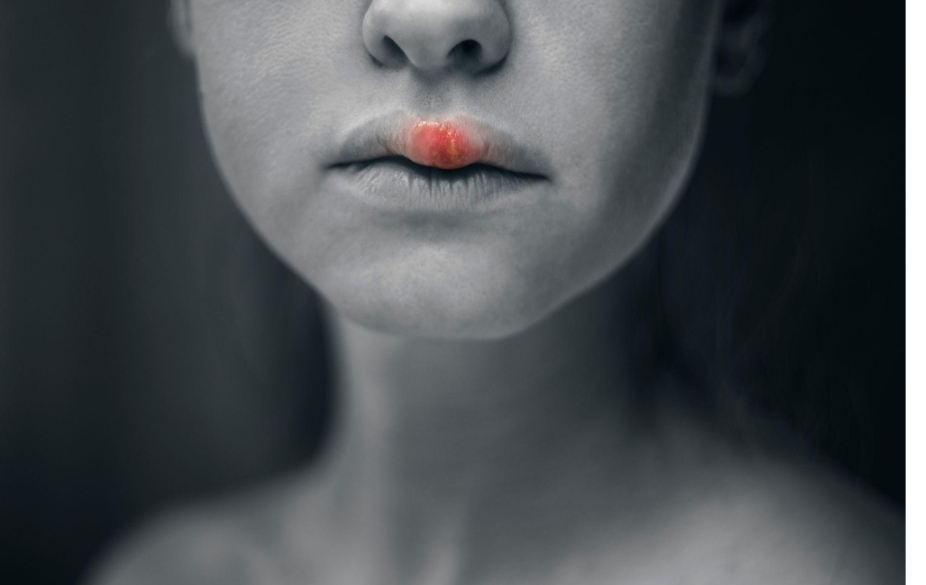
We’ve all been there – that telltale tingling sensation on your lip, followed by the unsightly appearance of a painful cold sore. These pesky blisters may seem like a mere annoyance, but did you know they can actually affect the health of your teeth? As a dental professional at Smile Ville, a practice serving the South Morang community, I’ve seen firsthand how cold sores can cause tooth pain and other oral health issues.
The Connection Between Cold Sores and Teeth Pain
Cold sores, also known as fever blisters, are caused by the herpes simplex virus. This virus lies dormant in your body and can be triggered by a variety of factors, such as stress, illness, sun exposure, or hormonal changes. When a cold sore outbreak occurs, the virus travels along the nerves to the surface of the skin, causing those all-too-familiar fluid-filled blisters.
But the effects of cold sores don’t stop there. The cold sore virus can also impact the health of your teeth and gums. Here’s how:
- Nerve Inflammation: Cold sores often form near the corners of the mouth, and the nerves in this area are closely connected to the teeth. When a cold sore develops, the associated nerve endings can become inflamed, leading to a throbbing, aching pain that radiates to the teeth. This can make it difficult to chew, drink hot or cold beverages, and even speak comfortably.
- Gum Irritation: The cold sore virus can also cause inflammation and irritation of the gum tissue surrounding the teeth. This can make brushing and flossing quite uncomfortable and, in some cases, even exacerbate existing gum disease. Inflamed gums are more prone to bleeding and can leave the teeth vulnerable to bacterial infections.
- Weakened Enamel: Studies have shown that the herpes simplex virus can weaken tooth enamel, making it more susceptible to cavities and other dental problems. This is particularly concerning for individuals who experience frequent cold sore outbreaks, as the constant assault on their tooth enamel can lead to increased dental work and treatments down the line.
- Compromised Immune System: Cold sores are most common in individuals with weakened immune systems, such as those with HIV or undergoing chemotherapy. This compromised immunity can also affect the health of their teeth and gums, as the body may struggle to fight off oral infections and diseases.
The cold sores effects don’t stop at just teeth pain, either. Recurrent cold sores have been linked to an increased risk of oral cancer, as the virus can cause cellular changes in the mouth over time. Additionally, the open sores provide an entry point for bacteria, leading to a higher chance of developing other oral infections, such as gingivitis or thrush.
Managing Cold Sores and Maintaining Oral Health
Fortunately, there are steps you can take to minimise the impact of cold sores on your teeth and overall oral health. Here are some key tips:
- Seek Treatment Promptly: At the first sign of a cold sore, visit your dentist or doctor. They can prescribe antiviral medications or topical treatments to help the sore heal faster and reduce the duration of the outbreak. Acting quickly can help prevent the cold sore from causing extensive damage to the surrounding teeth and gums.
- Maintain Excellent Oral Hygiene: Brush and floss your teeth regularly, even when dealing with a cold sore. Be gentle, and use a soft-bristled toothbrush to avoid further irritation. Consider using a mouthwash with antiseptic properties, such as chlorhexidine, to help keep your mouth clean and prevent the spread of bacteria.
- Manage Stress: Stress is a common trigger for cold sore outbreaks, so finding healthy ways to manage stress can go a long way in preventing future occurrences. Try some relaxing methods like yoga, meditation, or deep breathing. You can prevent cold sores by incorporating stress-relieving activities into your regular routine.
- Protect Your Lips: When spending time in the sun, apply a lip balm or cream that contains sunscreen to help prevent cold sore triggers. UV exposure is a known factor that can reactivate the herpes simplex virus, so keeping your lips protected is crucial.
- Avoid Sharing Personal Items: Cold sores are highly contagious, so avoid sharing items like lip balm, utensils, or drinking glasses with others to prevent the spread of the virus. This is especially important if you have an active cold sore, as the virus can be transmitted through direct contact.
By taking these proactive steps, you can help minimise the impact of cold sores on your teeth and overall oral health. And if you’re ever concerned about persistent teeth pain or other oral health issues, don’t hesitate to schedule an appointment with the team at Smile Ville. We’re dedicated to helping our South Morang community maintain healthy, happy smiles.
Remember, addressing cold sores promptly and maintaining good oral hygiene habits can go a long way in preserving the health and integrity of your teeth. Don’t let those burning blisters wreak havoc on your smile – take control of your oral health today.